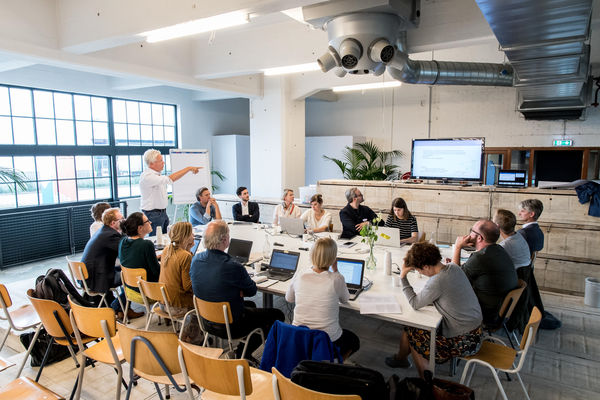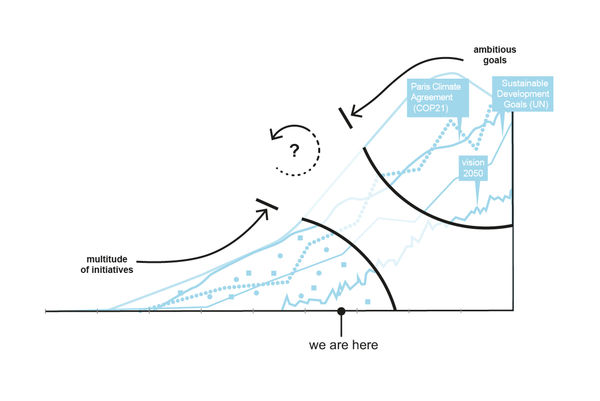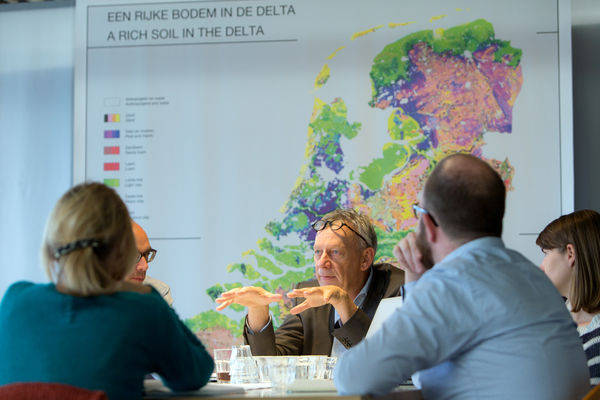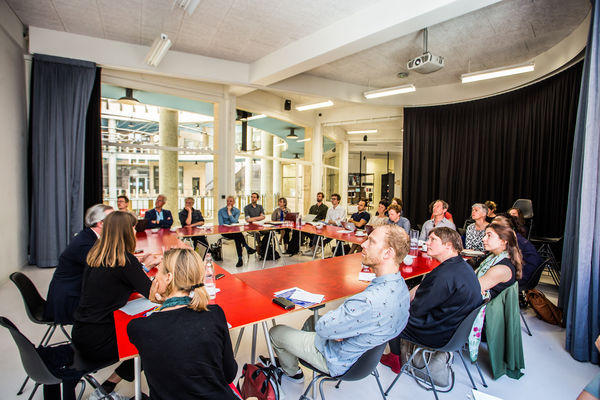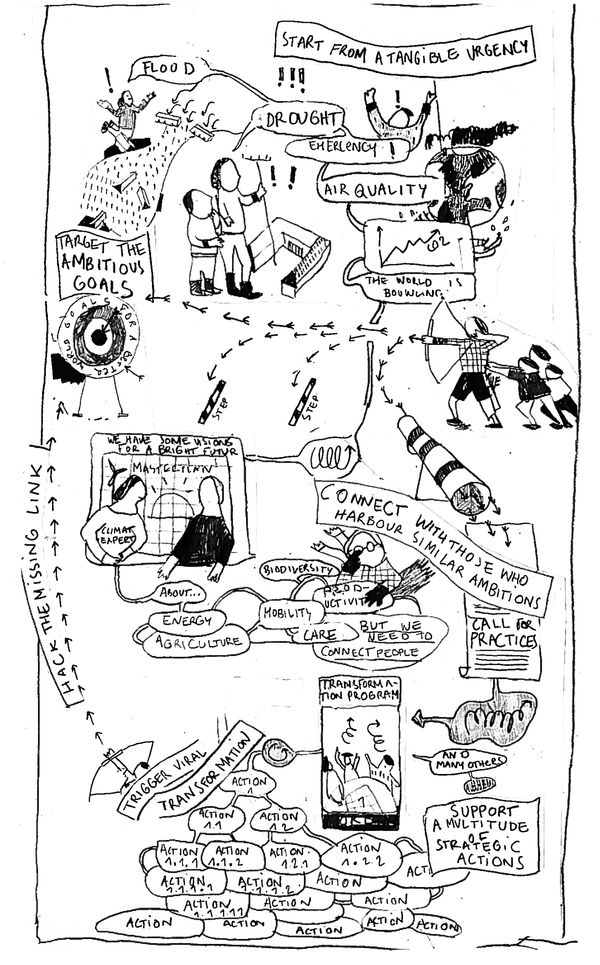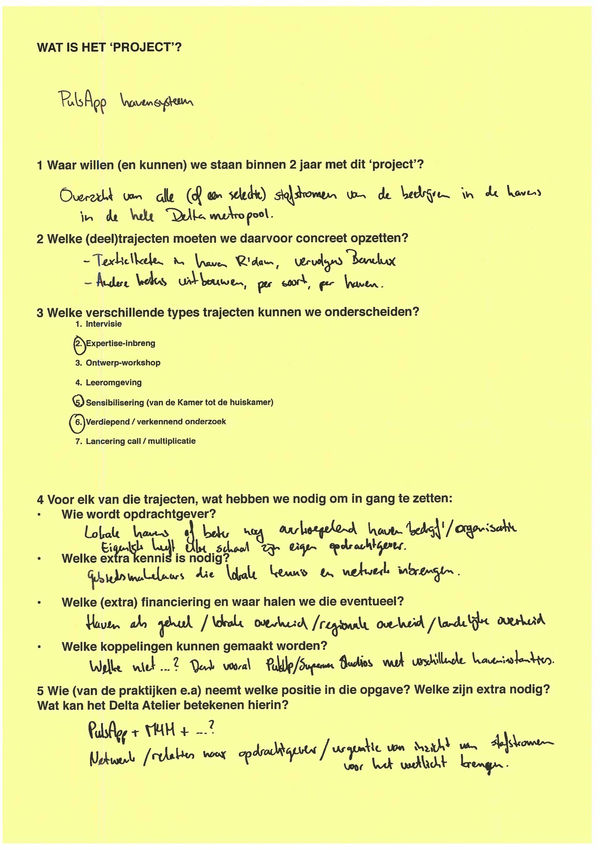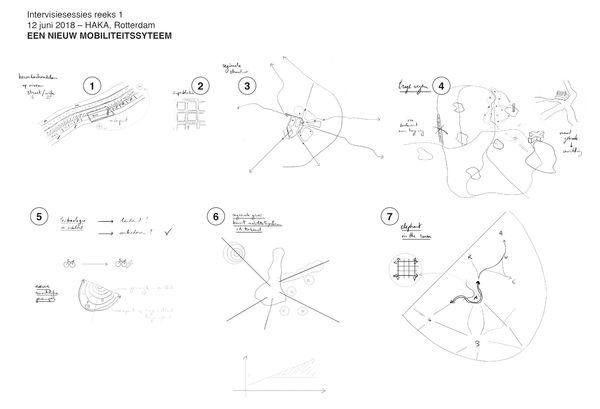The Delta Atelier aims to develop a practical perspective, first of all for the climate challenges in the Netherlands and Belgium, in order to use these countries as a laboratory for the world. Local and regional challenges require replicable instruments which can then be scaled up and tested at national and international level. The major challenges - from the energy transition to the switch to shared mobility - depend on many spatial transformations. They will provide insights that can be used, for governments as well as for social actors and innovators. Delta Atelier wants to be a binder and incubator for new strategies, instruments and partnerships to supply the necessary boost in order to achieve our objectives.
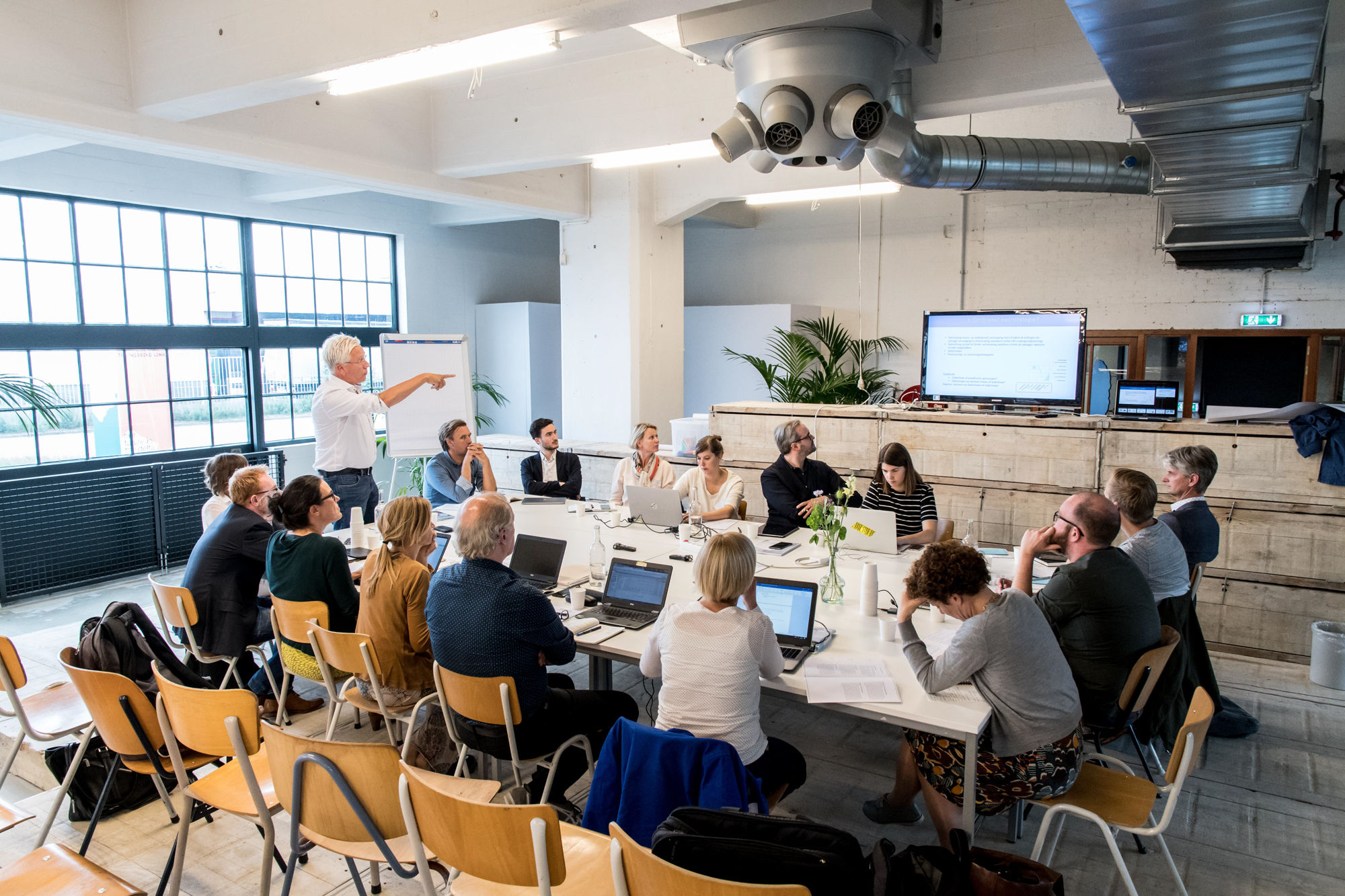
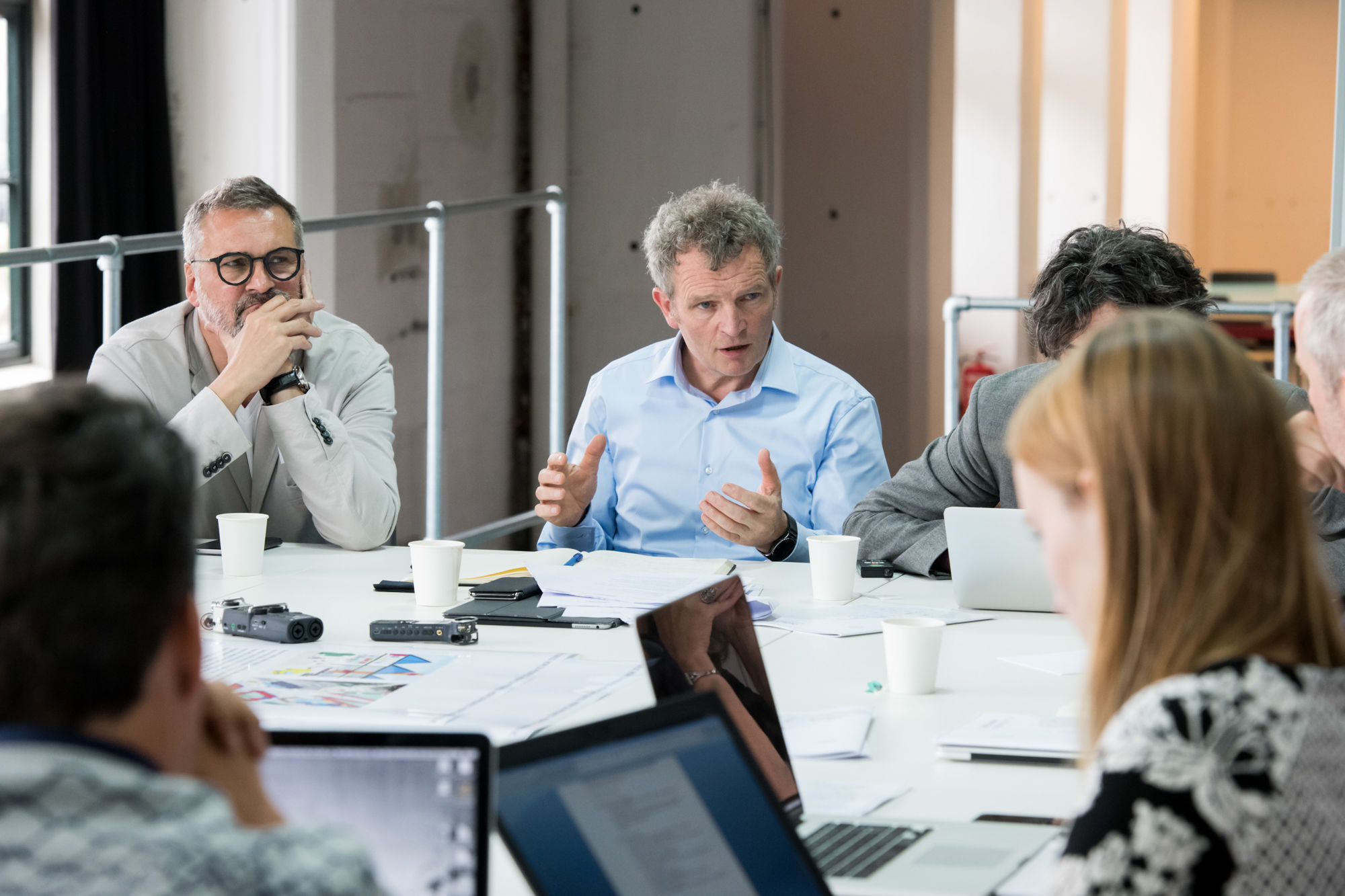
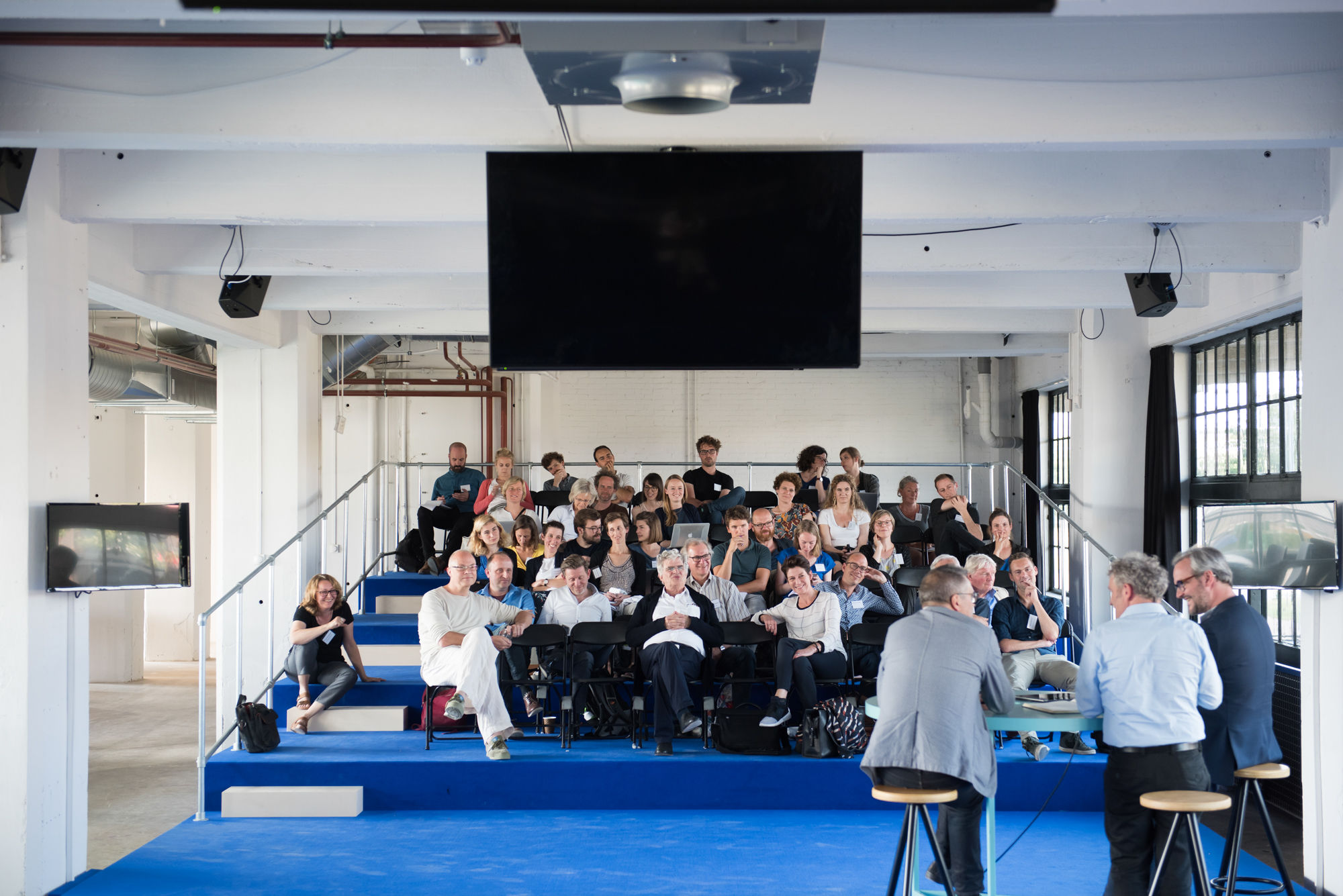
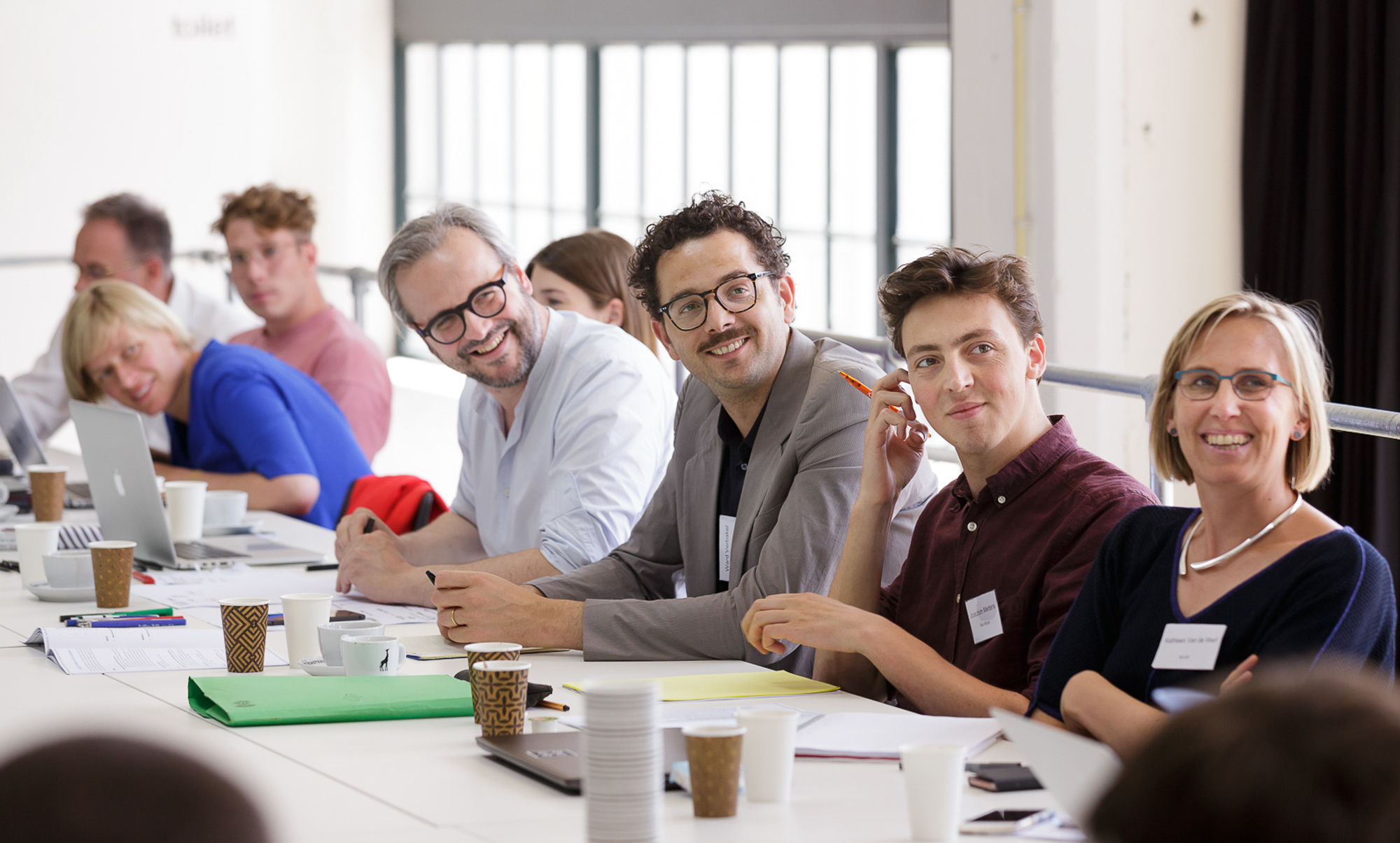
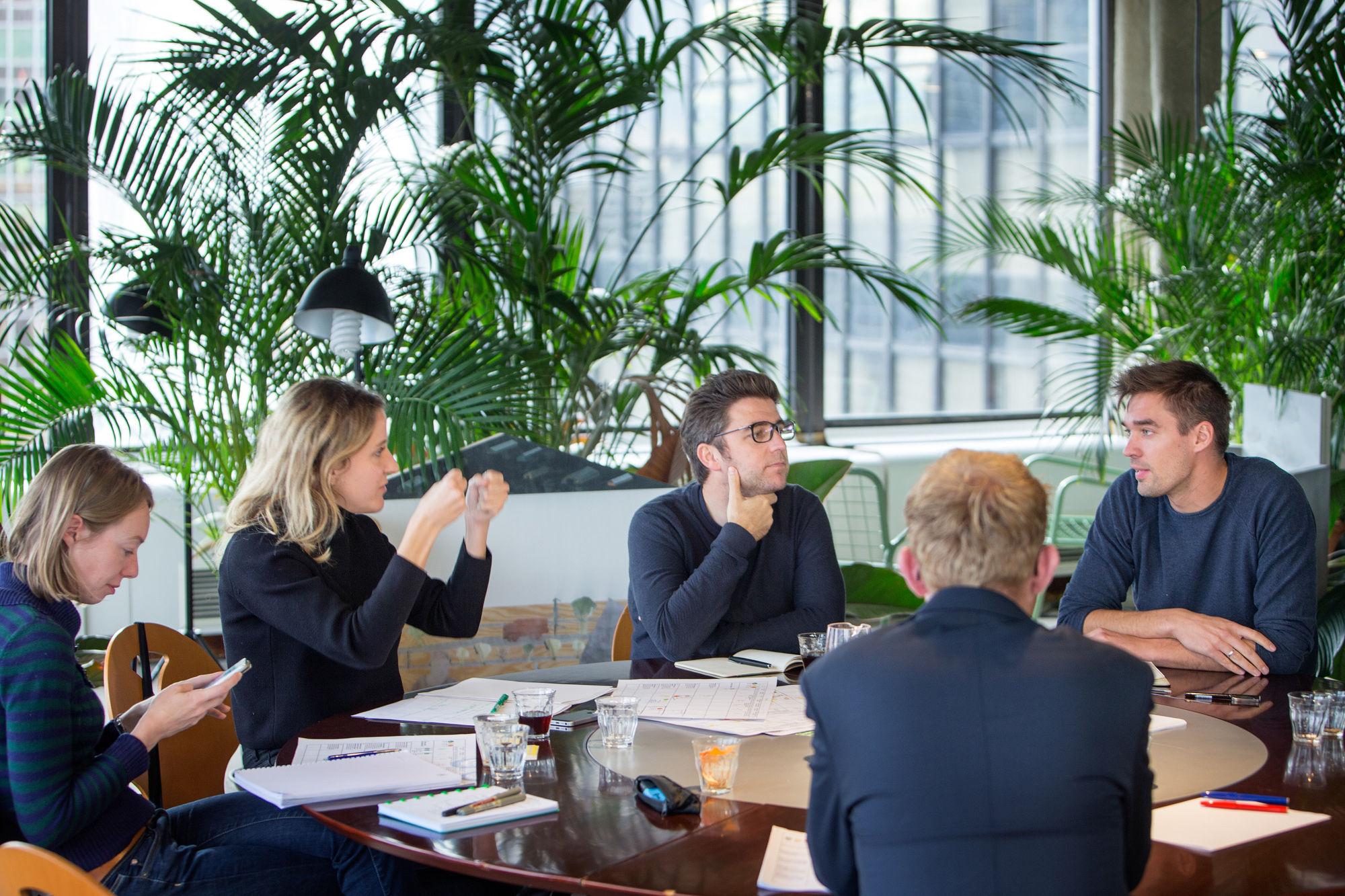
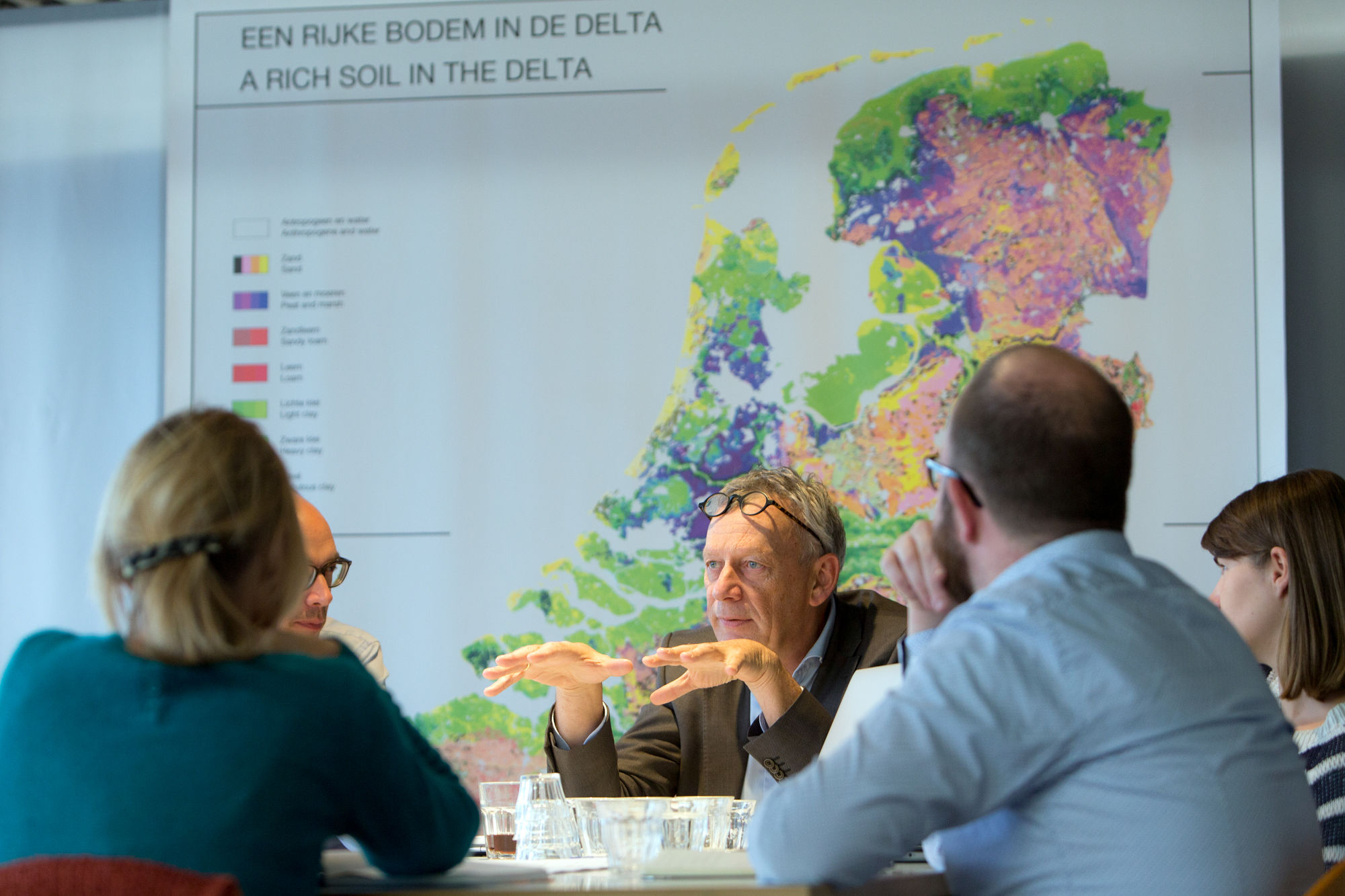
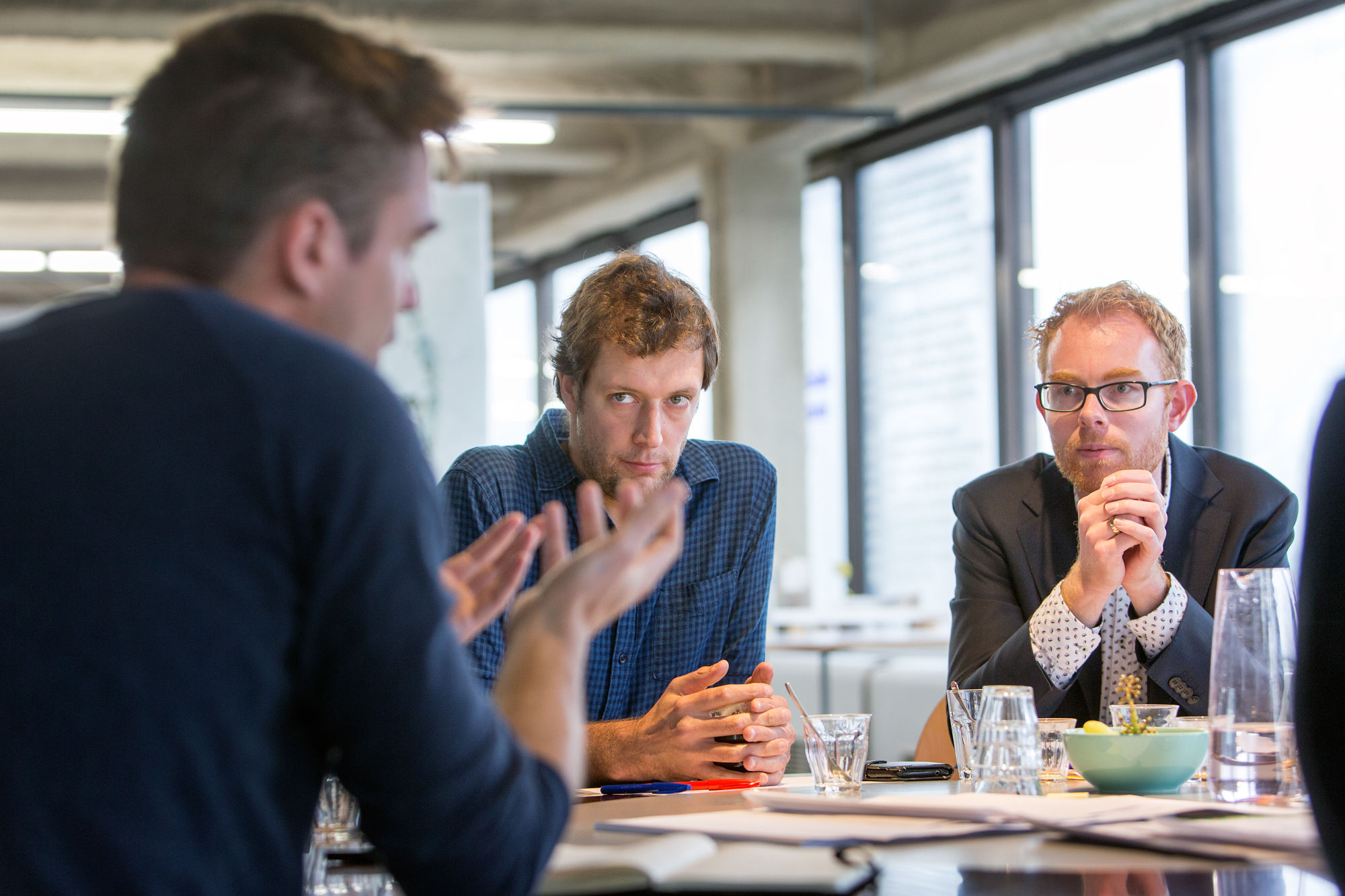
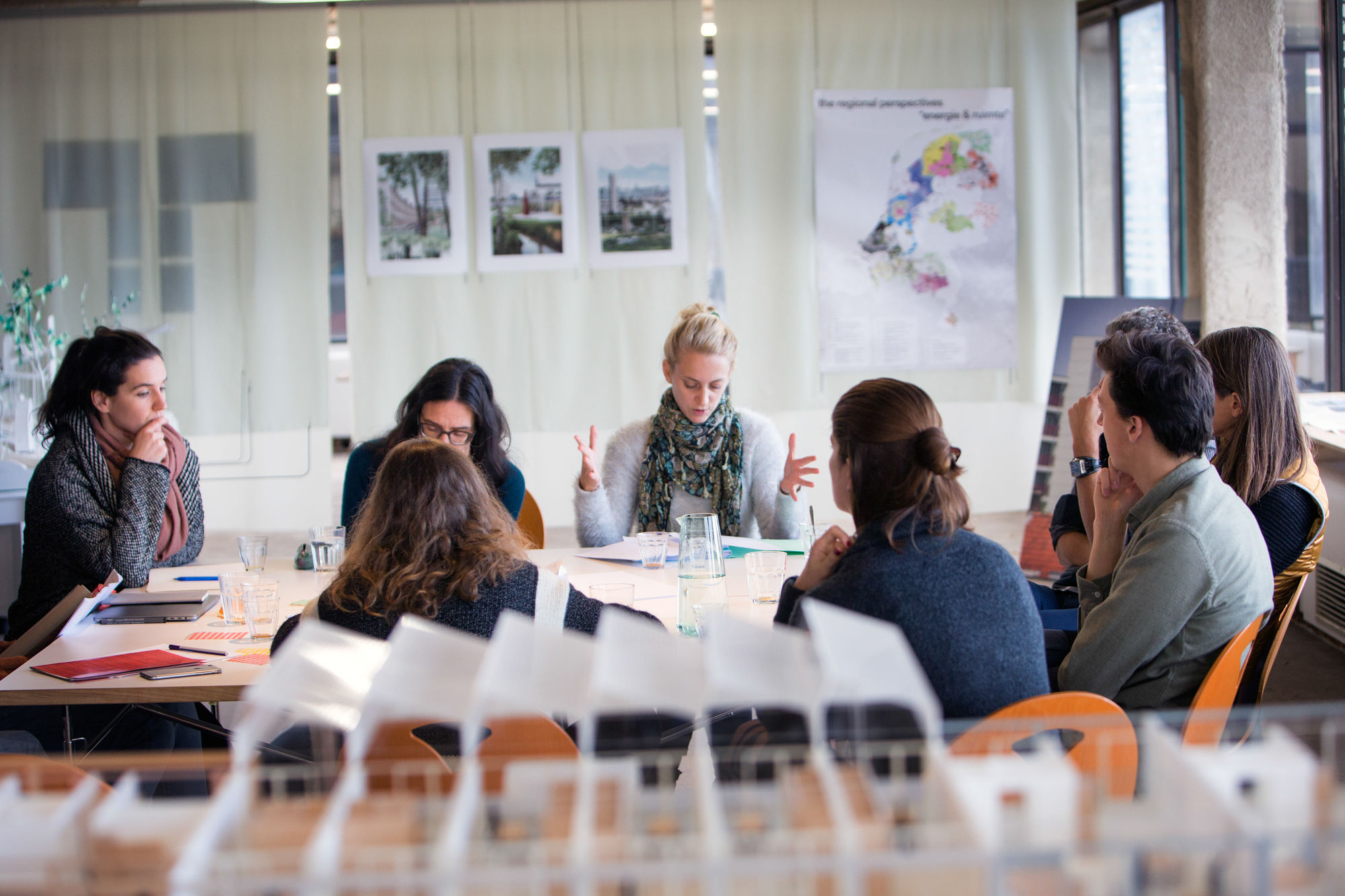
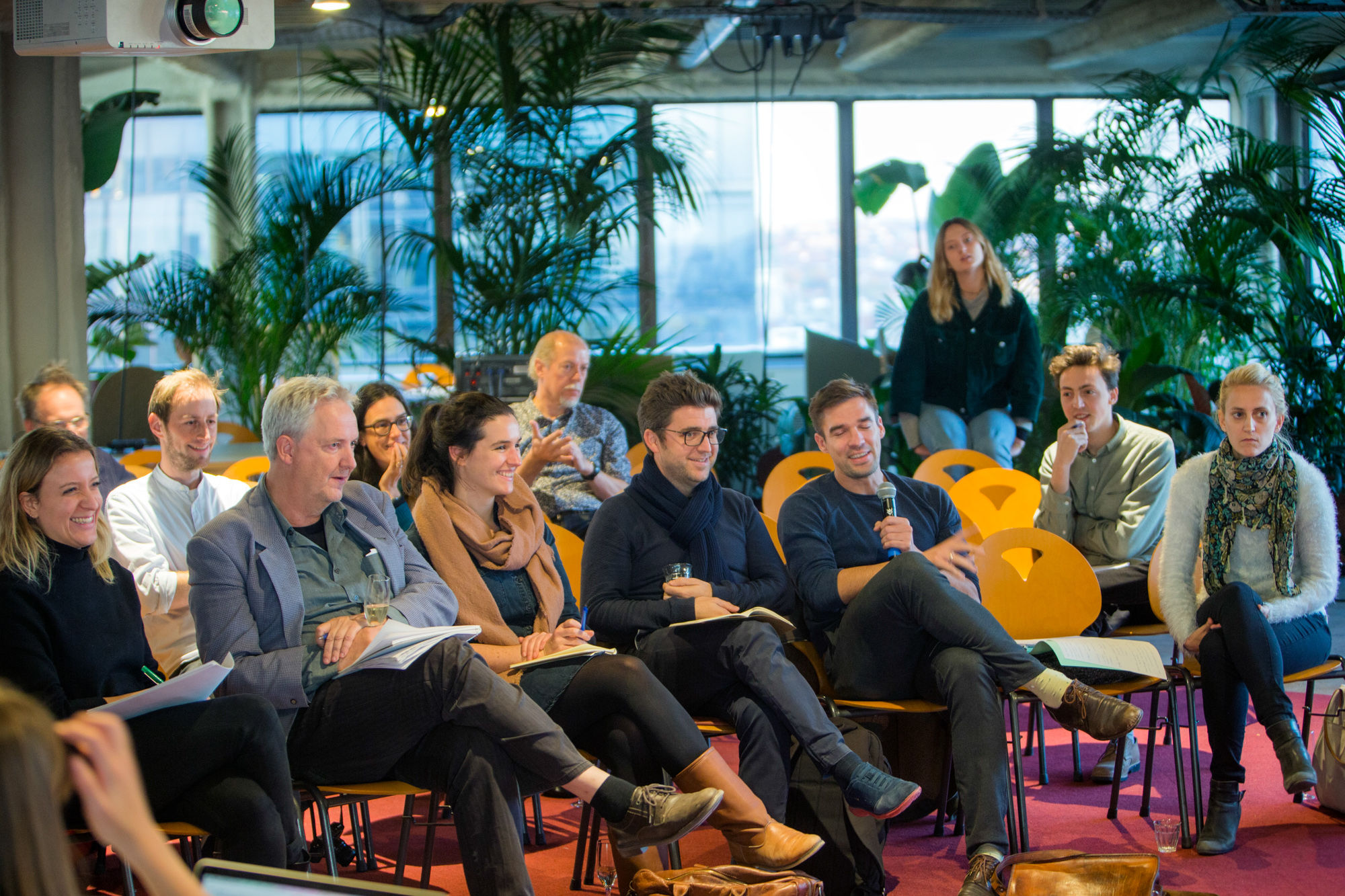
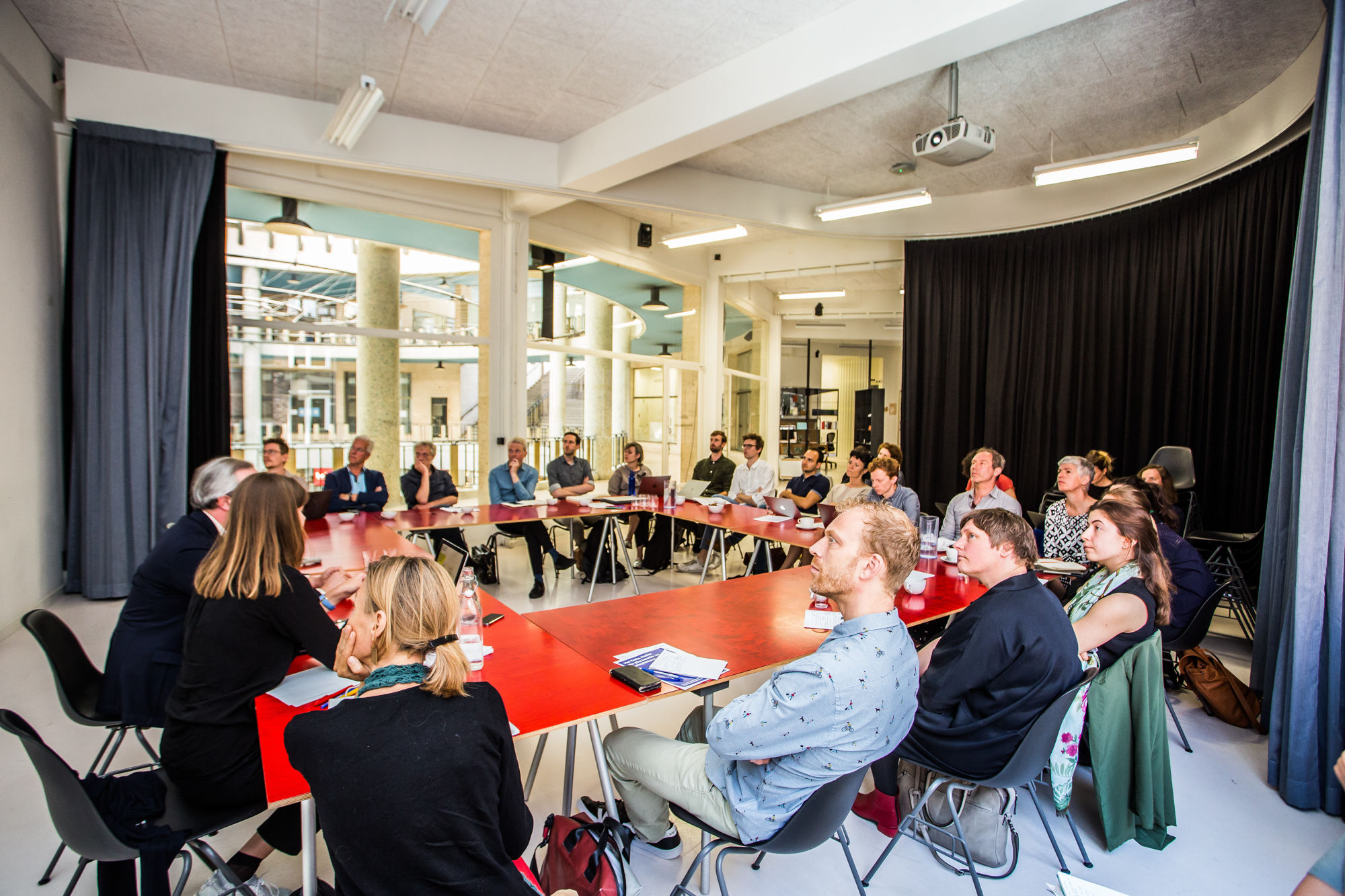
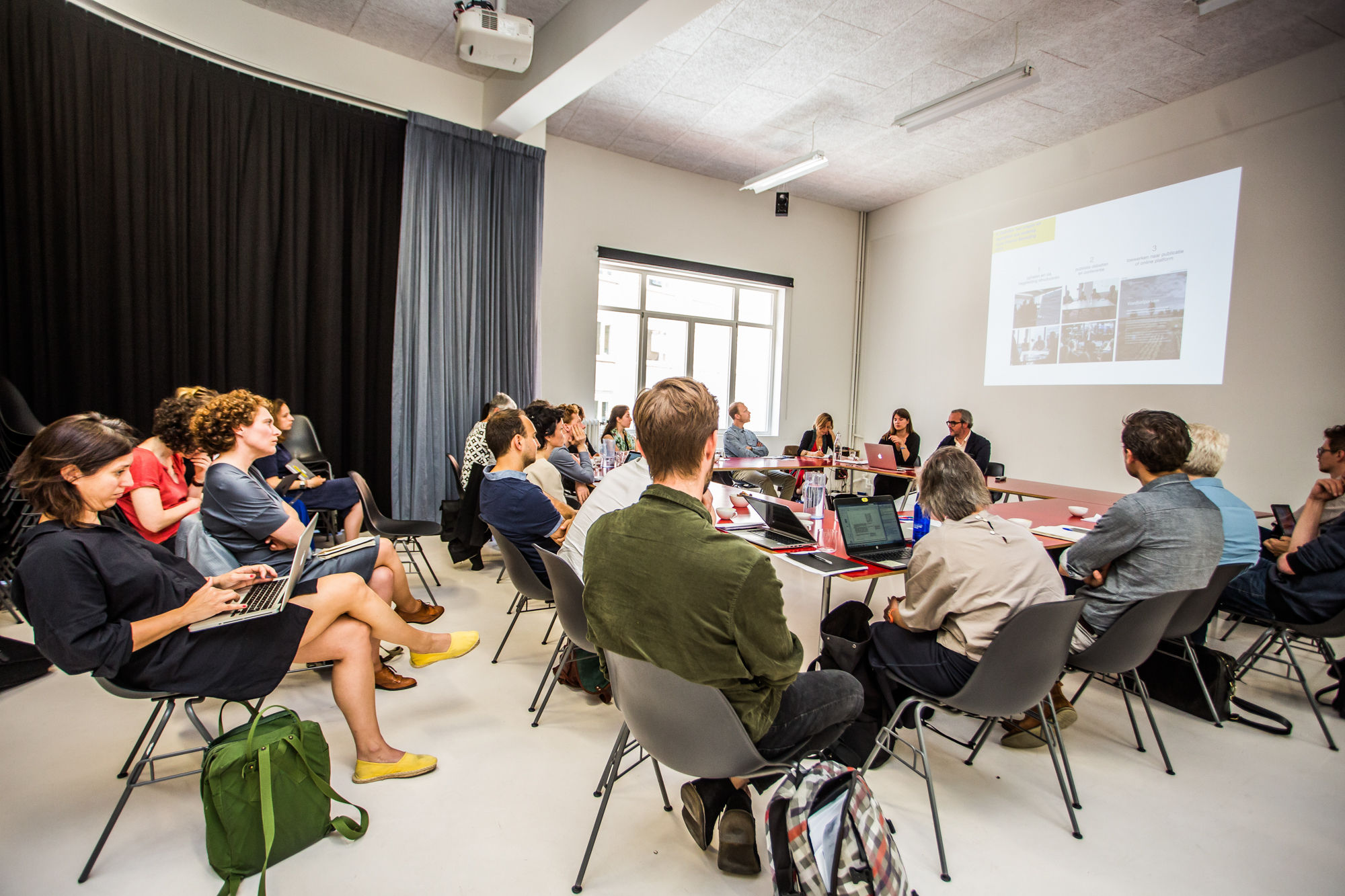
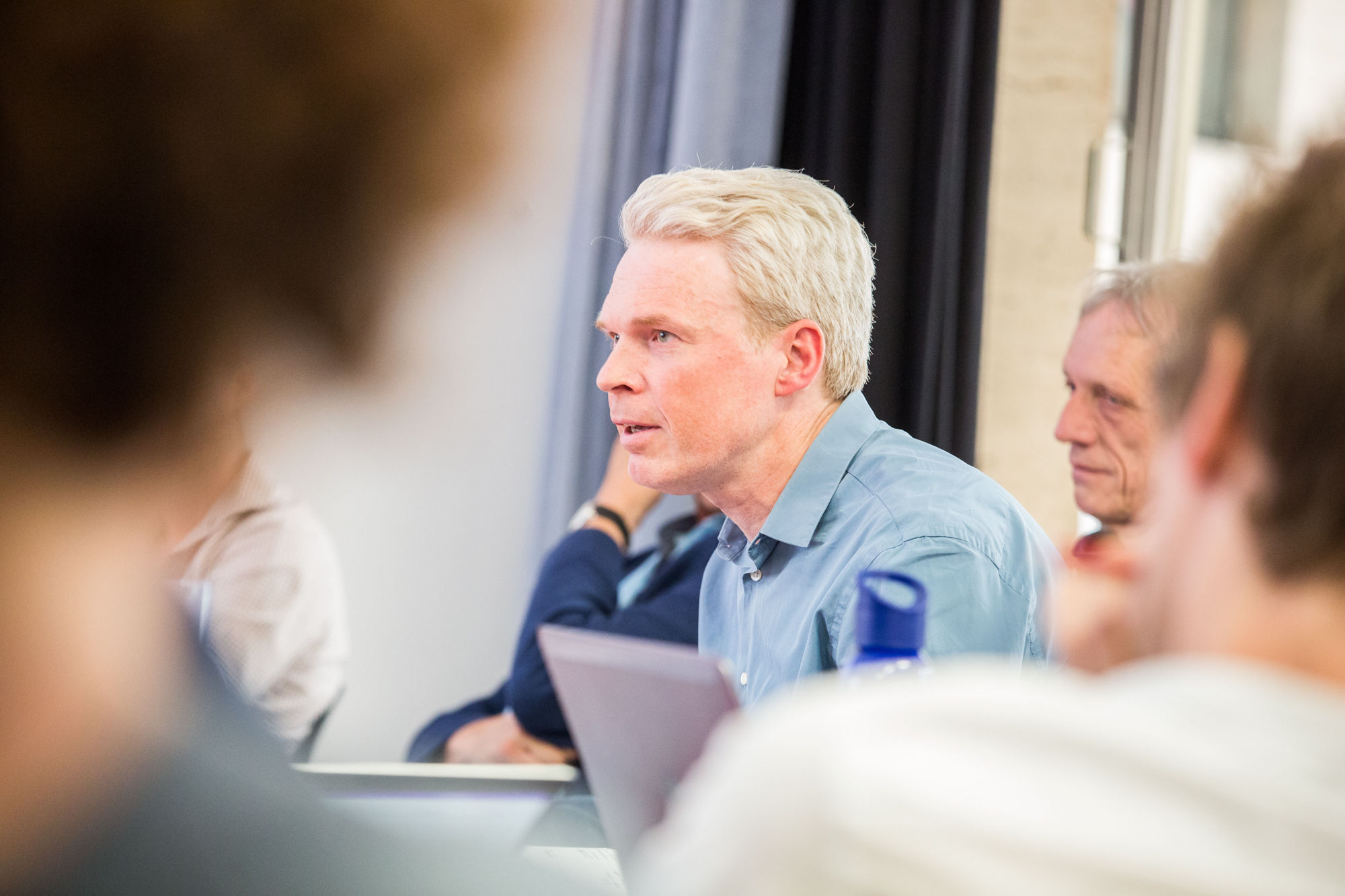
Together, the Netherlands and Flanders form part of the same unique spatial system in the Rhine, Maas and Scheldt delta, a densely urbanized area that plays an important role in the world economy. The transitions we are facing now and in the coming decades will manifest themselves here in a very different way and therefore also require specific spatial strategies. That's why IABR and Architecture Workroom Brussels set up the Delta Atelier, together with the architects in the Netherlands and Flanders.
The shared unique spatial system of Flanders and the Netherlands was already the starting point for the study De Lage Landen 2020-2100 A future exploration commissioned by the Department of Environment and the Flemish Government Architect, together with the Department of Spatial Planning of the Ministry of the Interior and Kingdom Relations of the Netherlands, and the Board of Government Adviser. The study was carried out by a consortium of designers and researchers led by Architecture Workroom and formulates a number of radical spatial strategies that prepare the Low Countries for a sustainable and prosperous future. Partly on this substantive basis, and with the cultural free space of the biennale as a platform, the Delta Atelier continues to build the future of the shared river delta. In this way, a tradition of working at the crossroads between cultural manifestation, design research and knowledge exchange continues.
In the context of IABR-2018+2020-THE MISSING LINK, IABR and Architecture Workroom, together with the architects in the Netherlands and Flanders, opt for a following and longer learning and development trajectory: the Delta Atelier. This Atelier wants to contribute to the acceleration of plans to implementation.
The IABR and its curators have not sent a Call for Projects, but a Call for Practices to the world. Based on this, thirty very diverse practices from the Netherlands and Belgium have been selected. These are linked in the Delta Atelier to the IABR-Ateliers and the design research projects of the curators. The result: more than forty practices that will actively work together for three years to close the gap we have named The Missing Link.
In the Delta Atelier, the missing link is addressed, dissected, researched, appointed, looked into and addressed. It must be done differently, and it can be done differently. And design can play a crucial role in this. In the Delta Atelier, acceleration mechanisms and methods will be designed and developed that will undoubtedly require major changes to our organizational structures and community habits. The persuasiveness of images and realizations will have to be convincing for an actual turnaround that is supported by a large group of players in different positions and from different implementation levels. Design and spatial transformations are a leverage for the necessary transitions, because new links and opportunities arise in space.
In various steps, Delta Atelier wants to develop concrete strategies one step further, pool and unlock knowledge, and gather and develop the proof we want to place on the table of society and politics during IABR 2020. In the exhibitions in Rotterdam and Brussels, the practices, their work material and methods are visualized on the basis of a range of different objects. The exhibitions represent the kick-off of a three-year working process.In June 2018, eight thematic work sessions will take place in the setting of the HAKA building in Rotterdam, followed by a work conference. Within the framework of many themes and scale levels, the aim is to focus on a few that we will work out together or in subgroups, in collaboration with partners or by involving external experts, into a concrete strategy with which policy makers or other actors are able to work with. These can be diverse in nature, but the basic condition is that they respond to The Missing Link in one way or another. Then Delta Atelier will continue: during autumn, the insights from the first series of workshops will be translated into exhibition materials on the work floor in the WTC tower in Brussels. We will invite people who are needed to focus on, or broaden the conversation. Thus, we will constantly readjust the target to be able to say in 2020 that something has changed substantially. Delta Atelier offers itself as a vehicle and as a place where things can be made negotiable, to develop a working method and to think about what exactly is needed in the long term.
The intermediate results of the Delta Atelier are reflected in the publication "Delta Atelier als innovatief kennis- en actieplatform: Bouwen op 3 jaar experiment" (Dutch only). In this publication, we look back on the past period and look ahead to the next decade. The publication can also be ordered as a printed copy.
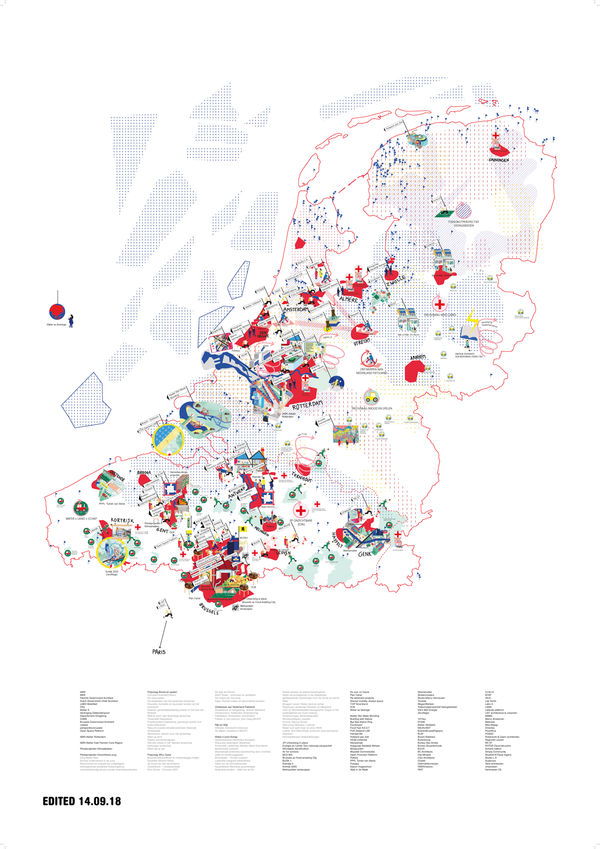

|
IABR 2018-2020- The Missing Link (NL) | 533 KB |
